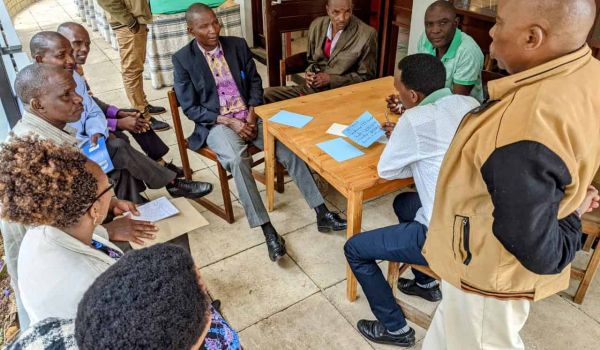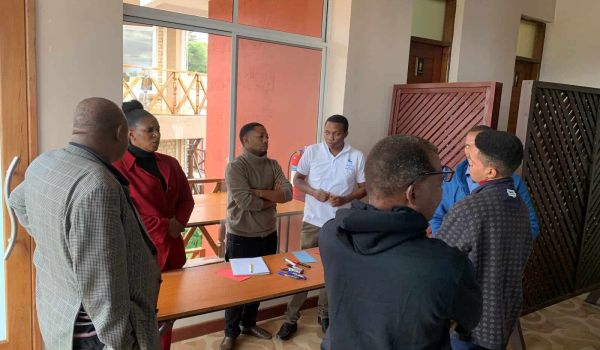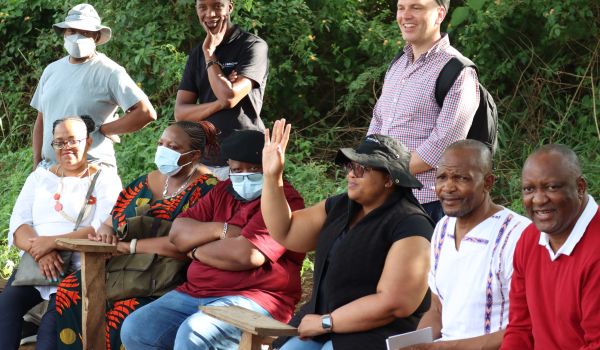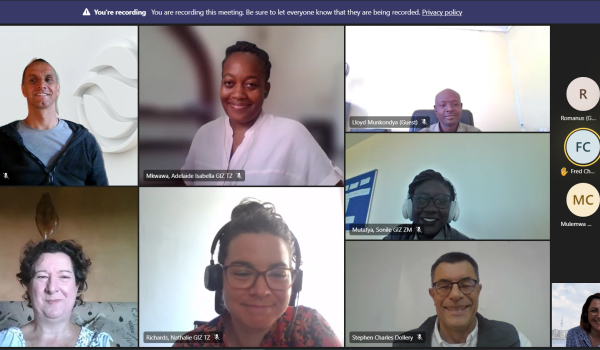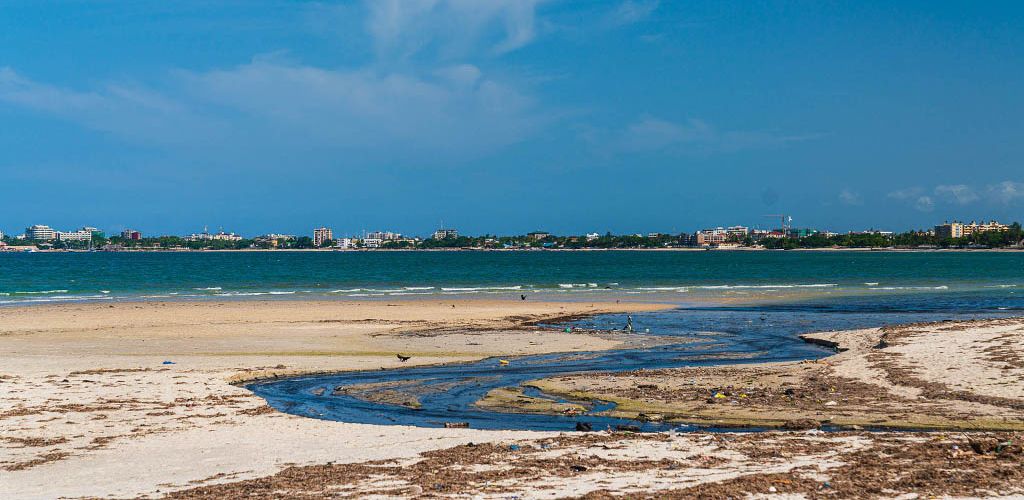
Tanzania – Safeguarding Economic Growth through Water Security Partnerships
Tanzania has recently moved to a Low Middle-Income Country status with capacity and opportunity to further economic growth. The industrialization of Tanzania for economic development and job creation is a key strategic objective of the Government of Tanzania under its National Development Plan. To achieve this strategic goal, the creation of Special Economic Zones (SEZs) and Export Processing Zones (EPZs) under the surveillance of the Export Process Zone Authority (EPZA) are considered key in attracting foreign investments to drive economic development.
Optimizing Wastewater Management in Tanzania
The lack of a functional industrial wastewater management system, however, poses a huge regulatory risk to investors who are seeking to operate within SEZs. To address this issue, NatuReS collaborates with the EPZA, the National Environmental Management Council, Dar es Salaam Water and Sanitation Authority (DAWASA) as well as with the Tanzania Bureau of Standards (TBS) and Wami/Ruvu Basin Water Board. The goal of this partnership is to develop industrial wastewater discharge guidelines and an industrial wastewater management system. This will not only provide regulatory clarity, but also help to safeguard against social and economic risk which result from increasing stress on water related natural resources.
Promoting Water Stewardship on All Levels
The government through the Ministry of Water has been supporting the 9 Basin Water Boards in their plans to better manage water resources. However, implementation challenges on the ground persist. To create sustainable outcomes it is important to integrate various stakeholders. NatuReS therefore facilitates two Sustainable Water Management Partnerships in Usa River and Weruweru Sub-catchment. Lessons learnt from the partnerships are shared through the Kilimanjaro Water Stewardship Platform. The platform was initiated by 2030 Water Resources Group and connects stakeholders that are active or interested in water stewardship in Pangani Basin.
Partnerships in Tanzania
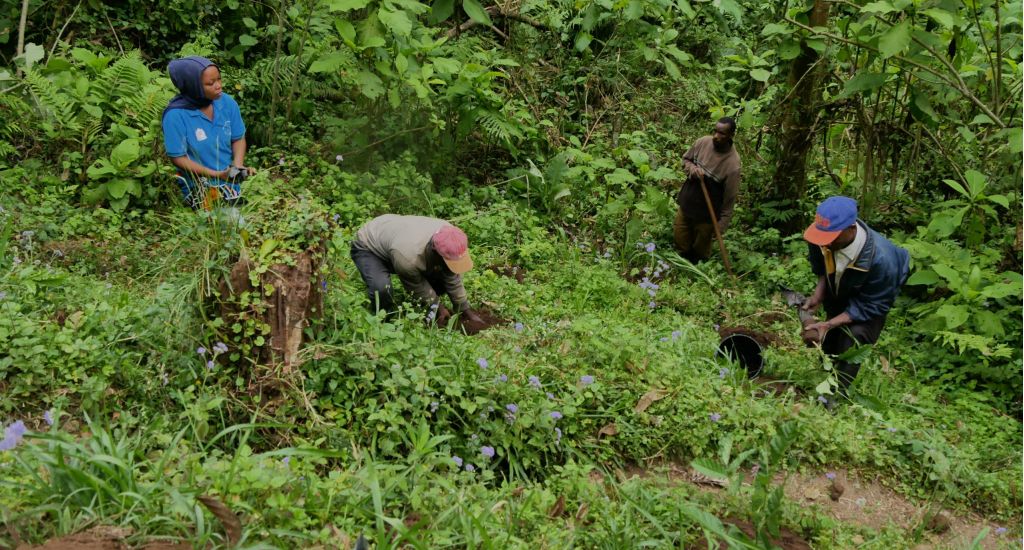
Pangani Basin Water Board official (on the left) guiding inhabitants of Nkweshoo village on afforestation activities within the vicinity of the Weruweru river in Northern Tanzania. Copyright: GIZ/Adelaide Mkwawa
Sustainable Water Management in Usa River
Water is a shared resource. It belongs to no one but is needed by everyone. In this environment, water use can quickly lead to conflict between users, and a lack of ownership and enforcement can allow misuse and pollution, with adverse effects on other users and communities. This video has been produced under the International Water Stewardship Programme (IWaSP), NatuReS’ predecessor programme running from 2013-2019.
Location: Kikuletwa Catchment (Arusha Region)
Aim: Improving water security in Usa River Sub-catchment
Activities:
- Improving water resources governance at the catchment and sub-catchment level through capacity building for regulators and Water User Associations (WUAs)
- Improving water resources data management and information sharing
- Training small scale farmers on efficient water use and sustainable farming practices
- Tree planting, protection of the springs and riparian zones
- Public awareness creation on water stewardship
NatuReS working areas: Catchments
Partners: Tanzania Ministry of Water, Pangani Basin Water Board, Meru District Council, Tanzania Plant Health & Pesticides Authority (TPHPA), Tanzania Horticultural Association (TAHA), Rijk Zwaan Afrisem, Usa River Malihai Club (UMAC), Upper Kikuletwa Water User Association, Rikolto
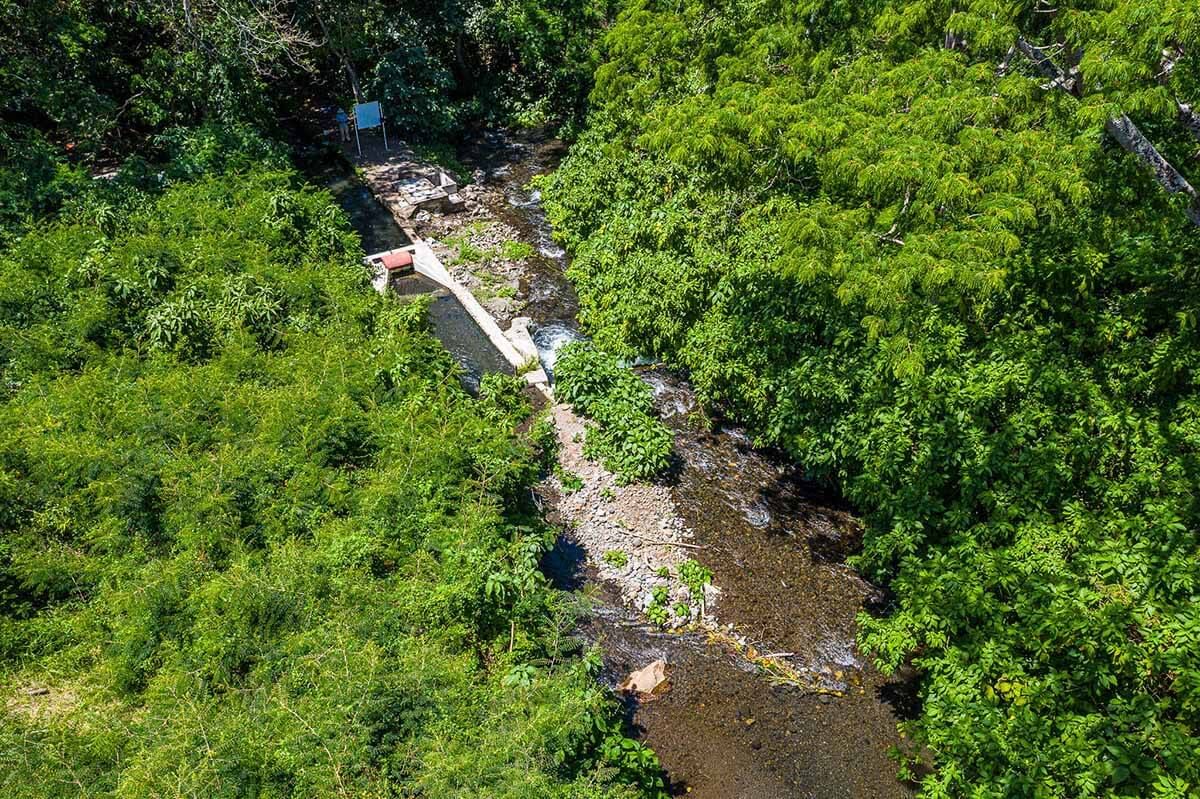
Unlined section of Furrow Number 1, in the upstream of Usa river sub-catchment with control gate and flow measuring, and water source protection warning signboard by Pangani Basin Water Office seen in the back. Copyright: Jesper Anhede
Sustainable Water Management in Weruweru
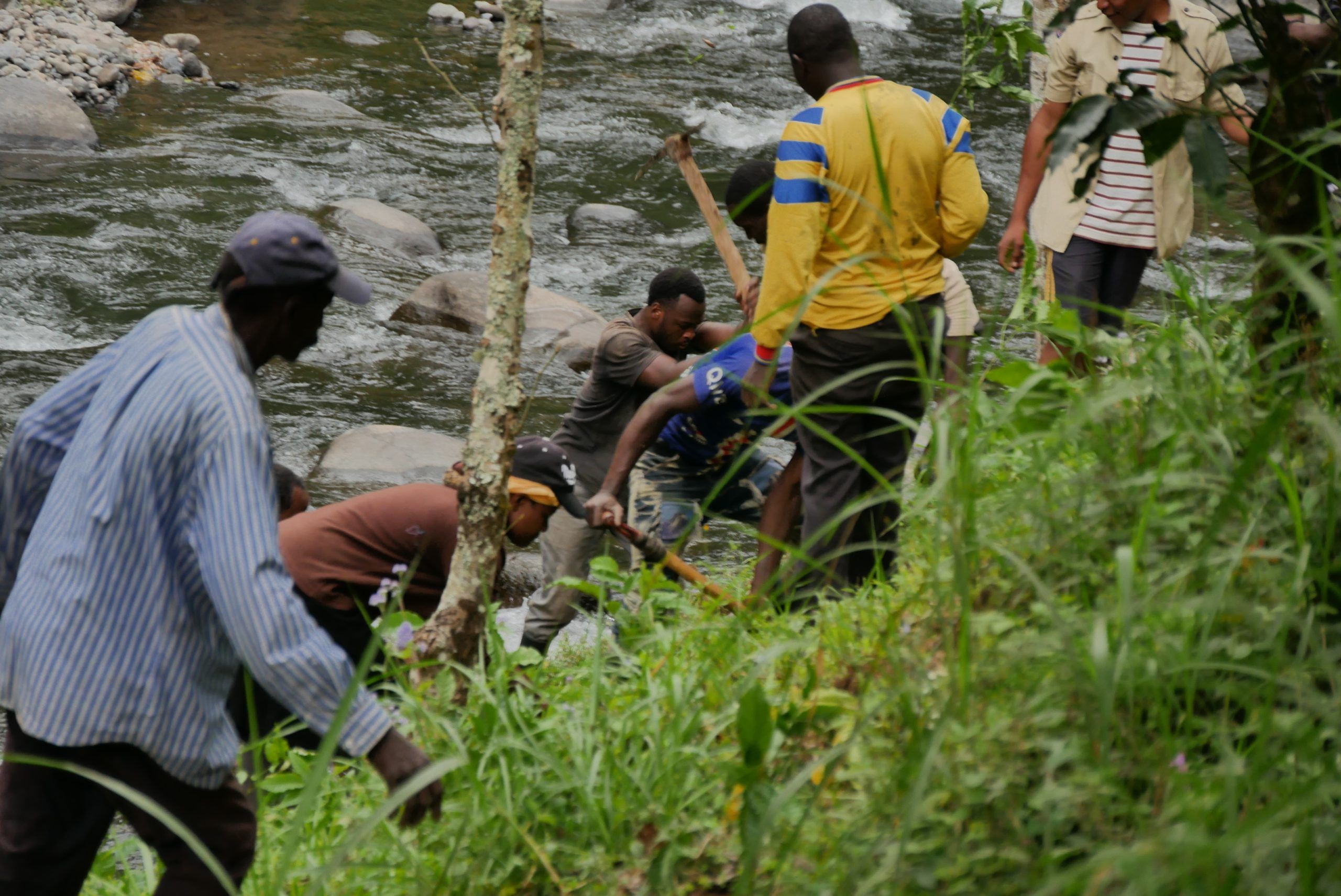
Participants of the tree tracking app initiative “pay-to-grow” are taking part in a tree planting exercise in the Weruweru sub- catchment. Copyright: GIZ/Adelaide Mkwawa
Location: Kikuletwa Catchment (Kilimanjaro Region)
Aim: Improving water security in the Weruweru Sub-catchment
Activities:
- Improving water resources governance at the catchment and sub-catchment level through capacity building to regulators and Water User Associations (WUAs)
- Improving water resources data management and information sharing
- Training small scale farmers on efficient water use and sustainable farming practises
- Tree planting, protection of the springs and riparian zones
- Public awareness creation on water stewardship
NatuReS working areas: Catchments
Partners: Tanzania Ministry of Water, Pangani Basin Water Board, Hai District council, Tanzania Horticultural Association (TAHA), Dekker Bruins, African Plantations Kilimanjaro (APK), Umoja wa Watumia Maji Mto Weruweru (UWAMAWE), Bio-Plan Initiative
Partnership with Export Processing Zones Authority
This video was produced by GIZ NatuReS in collaboration with the Tanzania Export Processing Zones Authority (EPZA), Dar es Salaam Water Supply and Sanitation Authority (DAWASA), National Environmental Management Council (NEMC), The confederation of Tanzanian Industries (CTI) and Wami Ruvu Basin Water Board (WRBWB).
Location: Dar es Salaam City
Aim: Enhancing the regulatory environment for investors about water related concerns; improving the overall attractiveness of Special Economic Zones and Export Processing Zones by securing water as a key resource for economic development and transformation
Activities:
- Improving water use efficiency and water reuse: Tooku Garments Ltd. is planning to double the wastewater treatment capacity to allow for production increase.
- Support Tooku in managing wastewater treatment plant and bulding local O&M capacity
- Enhancing sewer system and wastewater pump station in Benjamin William Mkapa SEZ
- Developing a multi-agency effluent discharge permit management system (to be used across the country)
- Operationalizing developed industrial wastewater management guidelines in SEZ
- Assessing suitability of DAWASA Mabibo Ponds for treatment of industrial effluent
- AWS assessment of Tooku Garments Ltd. and Benjamin William Mkapa SEZ against AWS criteria
NatuReS working areas: Economic Zones
Partners: Tanzania Export Processing Zones Authority, Wami Ruvu Basin Water Board, Tooku Garments Tanzania Ltd. (JD International Subsidiary), Dar es Salaam Water Supply and Sanitation Authority (DAWASA), National Environmental Management Council (NEMC)
Partner Voices
“My expectations are that from this collaboration we will be able to work together maintaining our furrow which is damaged and poorly managed, and that it will increase our certainty on water availability. The partnership also reduces individual actor costs of maintenance as the work is being done collaboratively. Without collaboration it is hard to ensure equity in water allocation, for example through the partnership water users within our furrow will be able to negotiate amount and timing for irrigating their farms.”
Mr. Gabriel Steven – Dekker Bruins Ltd. Manager
